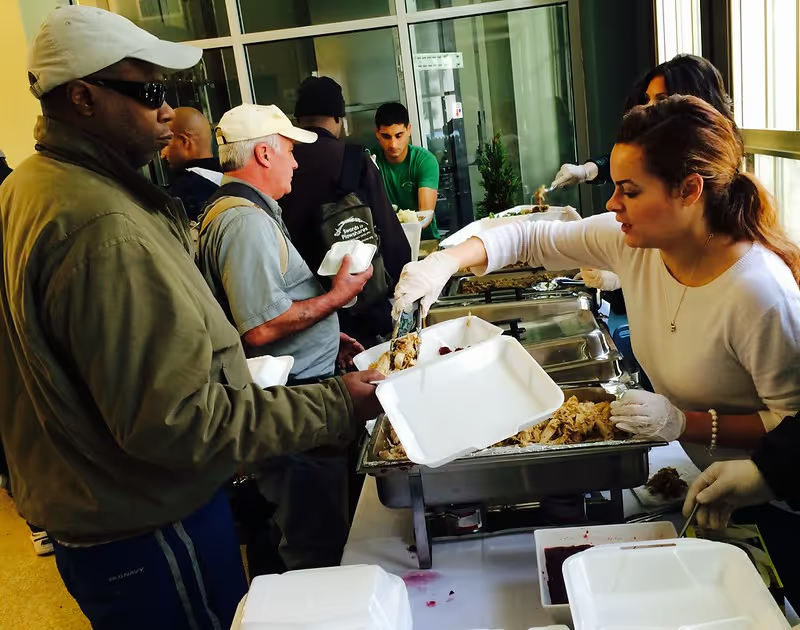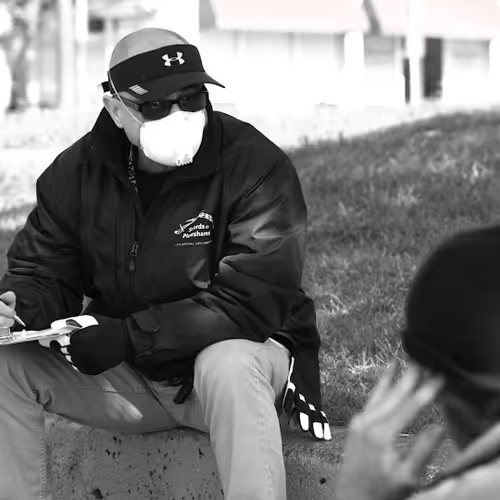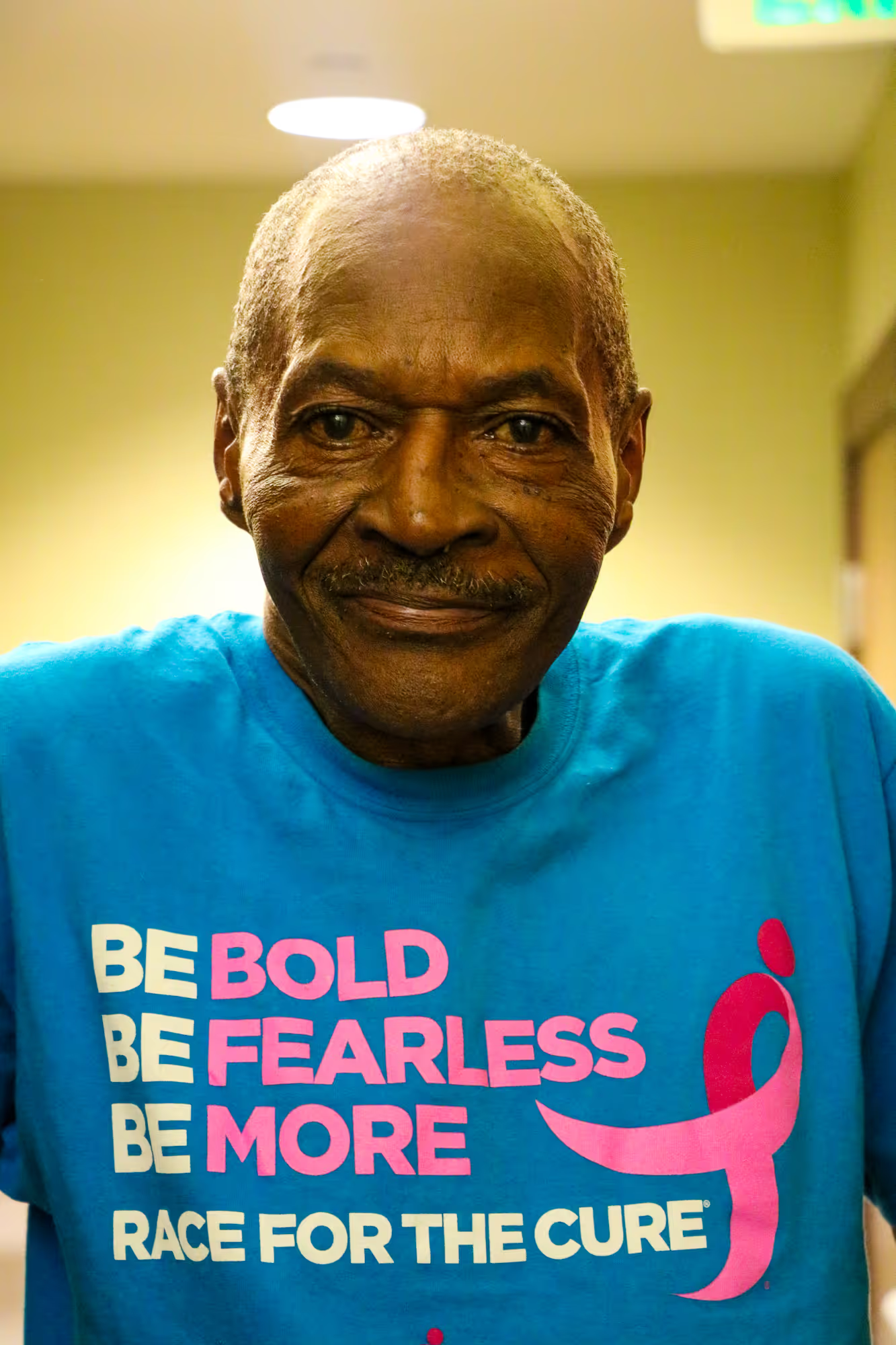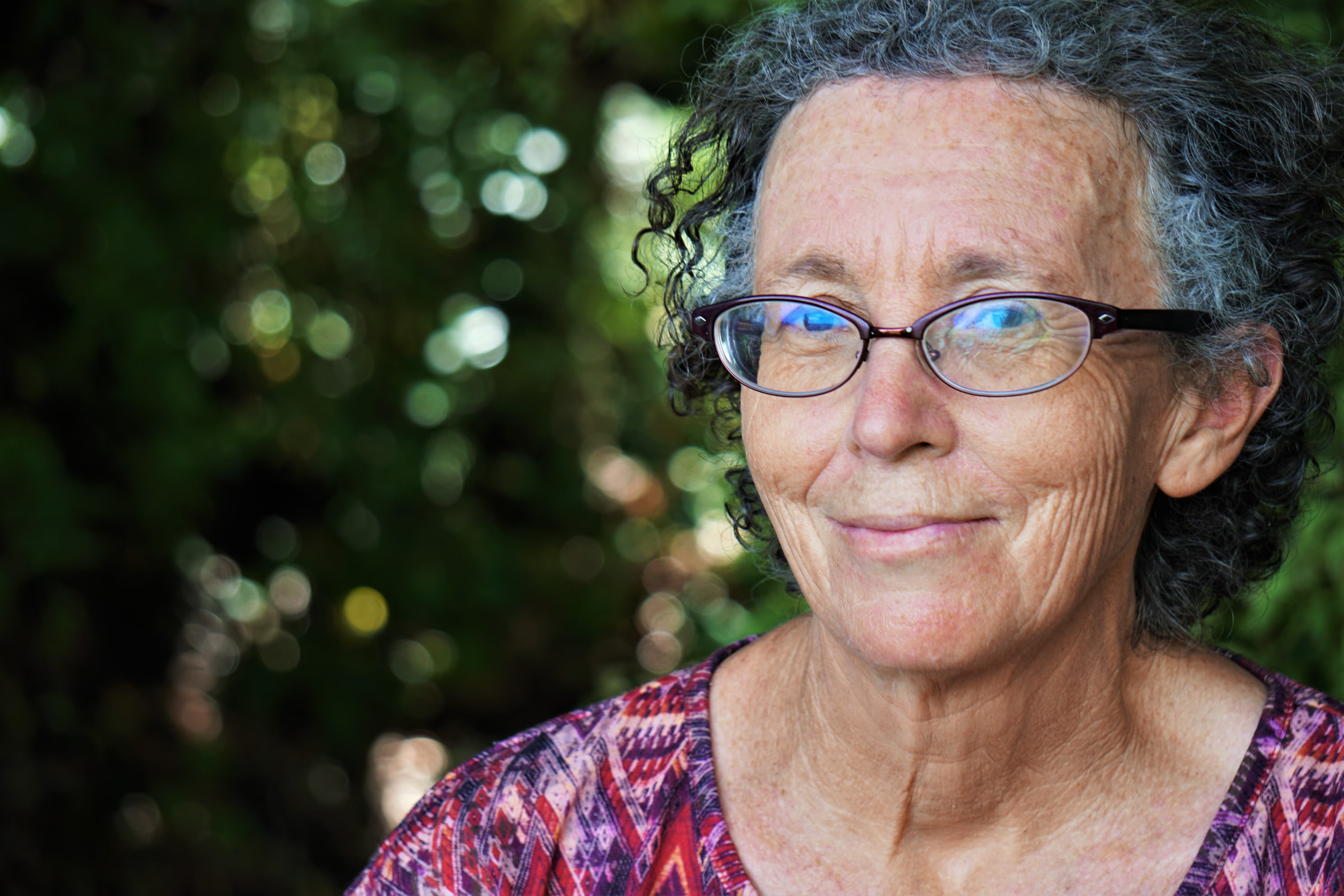HOUSING FIRST
Housing First is an evidence-based, cost-effective approach to reduce homelessness. It prioritizes placing veterans in permanent housing first and then addressing physical, mental, and behavioral health issues, sobriety and pursuing employment, if appropriate. Once the basic needs of shelter and food are met, the veteran and supportive staff or case managers can focus on other issues.
HARM REDUCTION
Harm reduction is a foundational element of Housing First as there is no requirement to be clean and sober at entry. Once housed, clinical and program staff can apply strategies to reduce harm through safer use, managed use, and abstinence. It acknowledges the physical and mental health risks of substance use without judgment and provides opportunities and help to decrease and discontinue use.
In practice, this means:
- Respecting the individual, reducing stigma, and building support and trust within the housing site population and broader community.
- Increasing awareness of resources for health and harm reduction through community and VA clinics and resources.
- Raising awareness of the health risks associated with substance use in the context of resources to reduce harm.
PEER SUPPORT
Veteran peer support in supportive housing provides an opportunity for veterans to assist other veterans with similar health issues to stabilize their housing, decrease isolation, and achieve recovery goals. Veteran peer support specialists are trained to support veterans while they are also actively engaged in their own recovery. This model has been shown to improve social functioning and quality of life, as well as reduce hospitalization and need for crisis services.
TRANSITIONAL SUPPORTIVE HOUSING
Grant and Per Diem:
Grant and Per Diem (GPD) transitional supportive housing program provides up to two years of housing, during which veterans receive mandatory stabilization services, mental health services, group counseling, employment services, and substance counseling. The intent is to stabilize clients and assist them in securing permanent housing. Residents in these programs are not tenants and are obliged to engage in behavioral health programming. GPD is generally sober housing.
In addition, GPD has special needs programs that focus on unique cohorts including women, individuals with minor dependents, chronically mentally ill, frail and elderly. As suggested by the name, GPD funds operators based on a per veteran, per day rate with special needs programs offering higher rates for additional staff and services.
For more information, see Grant and Per Diem Program - Veterans Experiencing Homelessness (va.gov).
Low-Barrier Safe Haven:
After pilot testing five sites, the VA has now contracted with twenty-four Safe Haven sites throughout the country. This model applies harm reduction principles and is designed for the hardest to reach and engage veterans who have experienced chronic homelessness. It is a 24/7 early recovery model of community-based treatment. These housing programs welcome veterans who may actively engage in substance use, those who may have failed in GPD due to sober requirements, as well as veterans with severe mental health conditions.
For more information, see The Safe Haven Model - Veterans Experiencing Homelessness (va.gov).
Healthcare for the Homeless:
Previously called the Chronically Mentally Ill Program, the name was changed to Healthcare for the Homeless (HCHV) to avoid stigma. This VA program includes services and funding for proactive outreach, case management, and residential services for hard-to-reach populations. Housing includes emergency and low-barrier housing and populations serviced are chronically homeless, those with serious mental illness, and those with substance use disorders, including active use.
Healthcare for Homeless Veterans (HCHV) Program - Veterans Experiencing Homelessness (va.gov)
PERMANENT SUPPORTIVE HOUSING
HUD-VASH Permanent Supportive Housing:
The HUD-VASH Program is the first permanent supportive housing program for veterans. HUD-VASH vouchers are like Section 8 vouchers in that the government pays the tenants’ rent, guaranteeing rental income to market landlords. Veterans are eligible for VASH vouchers if they are eligible for VA services and agree to case management by VA social work staff. This now includes veterans with OTH discharges. The level and extent of case management can vary depending on the veterans needs as assessed and veterans may graduate out of case management.
Vouchers are distributed to geographic locations based on veteran population and need and local VAs, departments of housing, and continuums of care distribute the vouchers to veterans and ensure habitability of rental property. Many localities use coordinated entry systems in which the community COC triages vouchers based on need and vulnerability of their local veterans experiencing homelessness.
Scattered site vouchers are used in private market housing, while project-based vouchers are assigned to mission-driven low-income housing sites. These vouchers remain with the housing site and if a veteran moves on, the unit is made available to another veteran. This allows for continuity within veteran permanent supportive housing, and ensures operating income required to run the facilities and to access development funding for new sites.
For more information, see US Department of Housing and Urban Development-VA Supportive Housing (HUD-VASH) Program.
SUPPORTIVE SERVICES FOR VETERANS AND FAMILIES
The Supportive Services for Veterans and Families (SSVF) program provides for eviction prevention, rapid rehousing, shallow subsidies, and other services that support other VA housing programs and promote housing stability. This program is unique in that flexibility allows community providers to tackle homelessness and assist very low-income veterans and their families through a variety of services, including healthcare navigation, financial planning services, transportation, legal services, childcare, and housing services. The grants are administered by community-based organizations throughout the country (a list of which can be found on the www.va.gov website, just search “SSVF” for a county-by-county listing).
SSVF services during the COVID-19 crisis were expanded considerably, which allowed for the rapid placement of veterans in emergency hotels to shelter-in-place safely.
HOUSING SUPPORTS FOR FAMILIES
HUD-VASH permanent supportive housing vouchers are an excellent resource for veterans with families so long as the eligible veteran family member resides with the family. In addition, some project-based HUD-VASH sites are equipped with larger units for families. There are also funding opportunities under the GPD special needs programs for transitional supportive housing for veterans with minor dependents. And of course, SSVF provides resources in support of housing.









